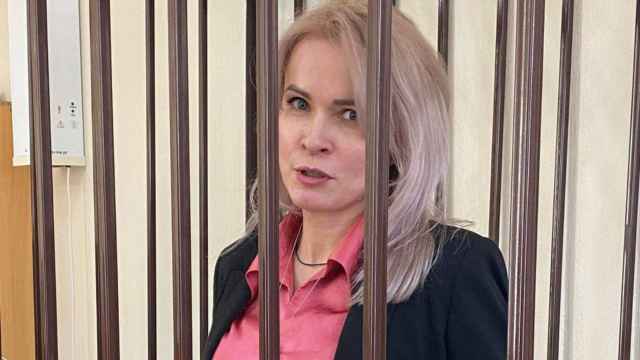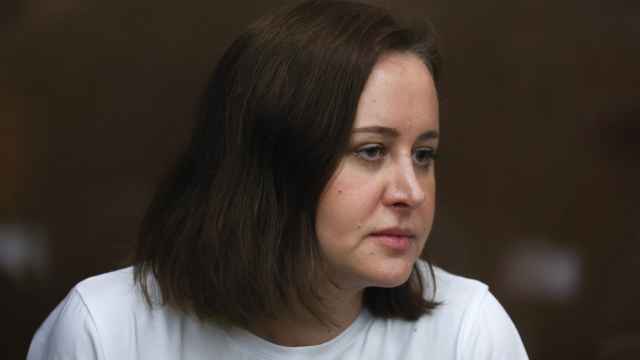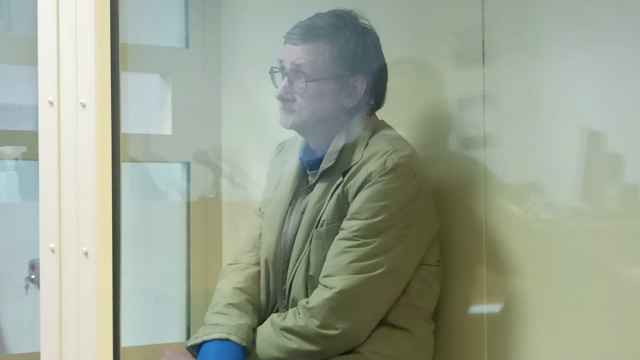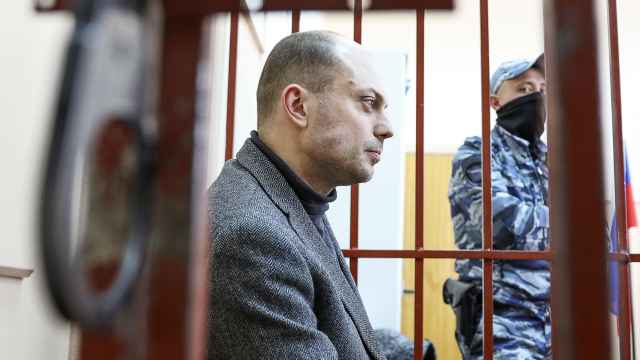When I was in a police van being driven from Detention Center Five to the Court, a woman told me, “The regime will fall someday because of the sick children,”
I don't have children of my own and I can't say that I have an especially deep love for them. However, there are children for whom my heart breaks. They were the ones who started the story that first threw me into the meaningless abyss of a Russian prison and then raised me to the sky on a plane alongside other prisoners of conscience.
In 2019, I worked as a counselor at a summer camp in Ukraine. Before everyone went home, the kids tied colorful threads around the wrists of those they wanted to remember for life. I was also honored with this gesture. One of those threads survived until February 2022. A police officer cut it off when I was detained after an anti-war rally in St. Petersburg.
I respect children and believe that we should be as sincere, friendly and kind to them as possible. Lots of people say you should have children to take care of you when you’re old. But I think we should think on a bigger scale: what matters more is how children can shape the future of our country. Perhaps a little girl being pushed in a stroller or some overly emotional teenager will be the ones to decide my fate when I am old.
We can see what the elderly rulers of the former Soviet countries are capable of. The PTSD of their fathers – the Chekists, generals, soldiers – could easily result in child abuse. Now, these seventy-year-old children are speeding the world into the void, trying to prove to their old men that they "can repeat" and even surpass them. They're haunted by visions of Stepan Bandera, Nazis in Ukraine, the invasion of the Soviet Union… It's no surprise that the person who reported me for protesting against the war is an old lady born under Stalin.
How we show the world to children – ours or others, it doesn't matter – is how it will become.
That is why it was important for me not to betray the trust those kids at the camp placed in me and not to break their faith in humanity. I truly hope that I succeeded, at least partly.
Now, about the children who, many female inmates believe, can be the end of Putin's state.
On Russian television, which I diligently studied in prison, there are two channels aimed at women, including those working in domestic roles. Almost every commercial break between women's detective stories, melodramas, case dramas about fortune tellers and psychics features an advertisement from a well-known foundation that raises money for children with mental and physical disabilities. Many of these children are terminally ill, and the foundation can only try and keep these little flames burning as long as possible. Each commercial is a story with a request for donations – for example, for urgent heart surgery for an infant or a mobile ventilator for a teenager so they can move around and enjoy life more.
All the women who saw these commercials had their hearts torn apart. Some dismissed it, convincing themselves that it was a scam: they could not imagine that the medical needs of these children were not covered by the state. But more often, women cursed and said things like, "It's a disgrace! So much money goes to the war, and good people have to raise pennies for these kids."
The "traditional values" model cracks here. No wonder that recently Rev. Tkachov, who replaced Putin's main jester Vitaly Milonov, proposed to revert the concept of childhood to an even more "traditional" one when more children were born, but many would not outlive their parents,…
The current ideology plays on love for children and parental fears, sometimes the most irrational ones. Let's ban gender-affirming therapy. Let's forbid "promoting"being gay, Pokémon Go and quadrobics. Let's outlaw the childfree lifestyle. Let's invade Ukraine to protect Russian children from Nazis and the West. Anything could serve as a pretext for retaliatory sanctions. Remember how the Kremlin caused a huge moral panic over the tragic death of Dima Yakovlov, a Russian child who died after being adopted by Americans, and named their retaliation for the Magnitsky Act after him?
Nevertheless, this seemingly strong cornerstone of Russian propaganda, this concept of a happy and innocent childhood, is actually wobbling like a milk tooth, shaken by hypocrisy.
Having spent two and a half years in prison, I know that a person can die there, even if they entered in perfect health. All our prisons are houses on fire with people slowly burning inside.
And yes, there are kids there, as young as fourteen – this is the youngest the court can choose to detain. Usually, the charges have to be grave: rape, murder, gang violence, etc.. But there are child political prisoners too. I've seen them – Arsenalka prison, where I was held, is also a detention center for minors.
Child political prisoners are locked up with these violent delinquents. Often, the parents are afraid of what will happen if they speak out – and not without reason. Children are beaten in cells, humiliated by the administration, or even thrown into solitary punishment cells. Just imagine how terrifying such isolation is for a teenager's mental health!
In prison, I saw mothers who cried for days on end because they were worried about their children who could otherwise be free, living in comfort and abundance with their relatives. I can't fathom what a mother or father feels when they're separated from their child and know they are in immediate danger.
When a rescue worker is faced with a terrible choice to save either a man or a child, who will they choose? For such cases, they have clear guidelines. From time to time, I meet people who were involved in preparations for this summer’s prisoner exchange. The choice they had to make about who got to breathe free air and who would have to wait was an unbearable burden.
What would I say if someone asked me whether I would want another political prisoner to take my place? Perhaps I would say yes, though I would be lying to myself. But if they told me that my place would be taken by a child, there would be no doubts – the child should be free. No one would have such doubts.
In my dreams, I imagine that Russia returns all the children, both Ukrainian and Russian, the Kremlin has stolen. A plane full of children would arrive and we gradually return what was taken away from them — their teenage years and childhood, time for joy, freedom, closeness with parents, first friendships, and first love.
Such an exchange would be a blow to Putin's ideology, which pretends to prioritize the family and safety of children Such a powerful event could not go unnoticed in Russia and would expose the hypocrisy of Putin's government. Knowing how the release of so many children would make Russians ask difficult questions, the Kremlin has to deny that underage political prisoners exist, nervously laughing, just like they are doing right now with the stolen children of Ukraine.
No one will gain any pragmatic benefit from this exchange. There will be even more bureaucratic difficulties with the children. They won't suddenly become prominent political leaders and overthrow the Putin regime. The state receiving them will certainly not see any "profits" for a long time.
But such a choice – a choice to stand on the side of the most vulnerable, spending enormous resources to give them a chance at life is precisely what it means to show that human life is priceless.
A Message from The Moscow Times:
Dear readers,
We are facing unprecedented challenges. Russia's Prosecutor General's Office has designated The Moscow Times as an "undesirable" organization, criminalizing our work and putting our staff at risk of prosecution. This follows our earlier unjust labeling as a "foreign agent."
These actions are direct attempts to silence independent journalism in Russia. The authorities claim our work "discredits the decisions of the Russian leadership." We see things differently: we strive to provide accurate, unbiased reporting on Russia.
We, the journalists of The Moscow Times, refuse to be silenced. But to continue our work, we need your help.
Your support, no matter how small, makes a world of difference. If you can, please support us monthly starting from just $2. It's quick to set up, and every contribution makes a significant impact.
By supporting The Moscow Times, you're defending open, independent journalism in the face of repression. Thank you for standing with us.
Remind me later.








